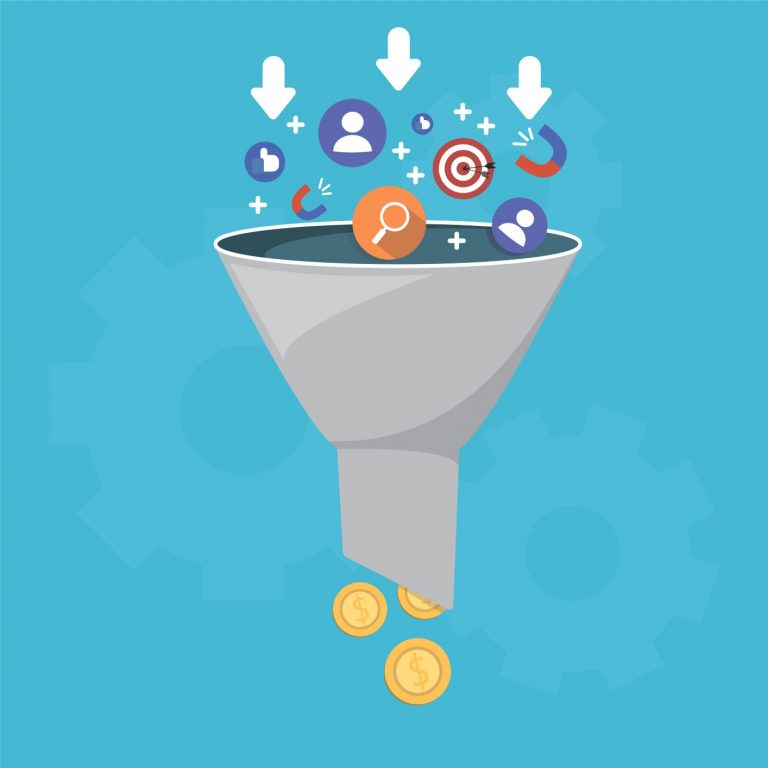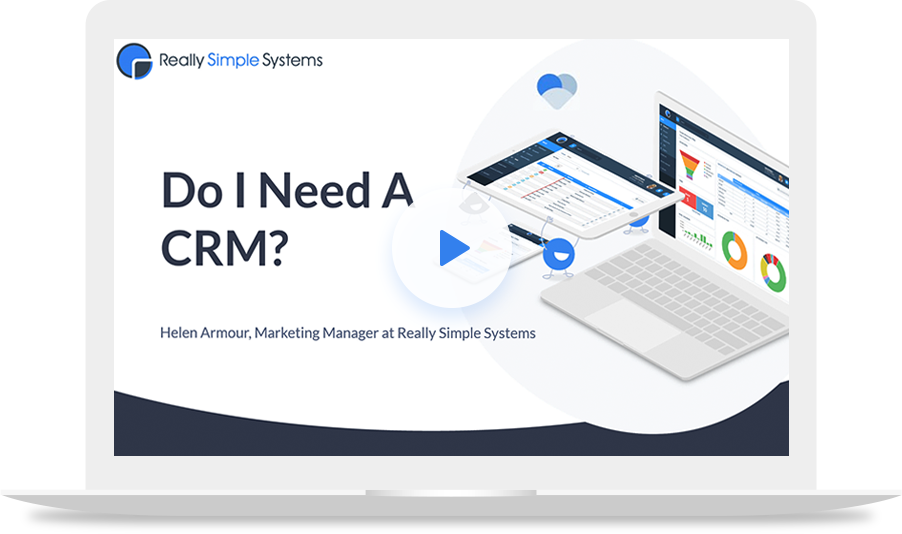Do I Need a CRM System?
CRM systems can provide many benefits, but not every business needs one. We’ve listed 7 factors to help you decide if you need a CRM.
How to Identify if a CRM is Right for Your Business
Your business and customer base are expanding, and you’ve started to research how to improve your customer relationships and manage your sales. It’s likely you’ve noticed the acronym CRM mentioned frequently. Simply put, CRM, or Customer Relationship Management, refers to business software that tracks your interactions with your sales prospects and customers.
The right CRM system can power up your business like nothing else. Implemented properly, a CRM will store and manage your customer and prospect data, tracking your interactions and helping you win more customers by boosting your sales team’s ability to close deals, improving your support team’s customer service, and automating your marketing.
But does your business need one? And is a CRM system worth the investment? Here are our top pointers to identify if your business could benefit from CRM software.
1. You Can’t Remember Every Prospect
The first sign that you need a CRM may well be when you are handling more prospects that you can remember. If you are forgetting to follow up and losing your leads to your competitors then it’s time to take action.
Using a CRM, when you add a new lead to your sales cycle, you will start to build a timeline of your interactions with them, creating a full history of your relationship. At the same time, a CRM system lets you set follow up dates and reminders for each prospect so nothing gets forgotten.
Discover if CRM is Right for You
2. Your Prospects Have Multiple Points of Contact
If your prospects and customers are talking to multiple people within your organisation, it can be easy to lose track of what’s been communicated over the period of the sales cycle. It can also happen that someone has taken a message and not passed it on to the person dealing with that account.
A CRM system will provide a documented history of all your interactions with them, showing who has said what and when. And using a cloud-based CRM will mean all your team can actively collaborate in real-time, recording messages to the account and setting follow up tasks for colleagues, even when working remotely.

3. You’re Operating B2B
All the major CRM products are built to a B2B data model with Contacts (the individual people) belonging to Accounts (the companies you do business with). You can use B2B CRM systems, like SpotlerCRM, for B2C (business to consumer) but it isn’t ideal, and you might be better off with a simple contact management system instead. If your business operates in a mixed environment of both B2B and B2C, the compromises still make a CRM system worth the investment.
4. You’re Acting on Instinct
The visibility of data is just as important as collecting it. Rather than relying on gut feeling, a CRM provides the data you need to make your business decisions. If you want to run sales forecasts or review your sales, marketing, or other business activities, then a CRM system will give you what you need.
From the probability that a sale will close to the number of customers who clicked on your latest newsletter links, a CRM can pull all your data into a report for easy analysis.
5. You’re Managing Sales People
If you have sales people, then you’ll want to make sure the details of their prospects are under your control. This means you can monitor what they are doing and make sure, should they leave your organisation, their sales pipeline doesn’t leave with them. Not only that, a CRM system will show you how they are performing and the value of customers they are bringing to your business.
6. You Have a Lengthy Sale Cycle
A lengthy sales cycle could last for many months. Therefore, it’s likely you won’t remember where each prospect is in the sales pipeline, and what happened in the last call. If this is the case, a CRM system is needed to easily pull up your history with the customer and continue where you left off.
Also, if you have personnel changes during the process you are not left trying to decipher what has gone before.
7. You’re Running Marketing Campaigns
If you are running email marketing campaigns to either send out simple newsletters or to do more sophisticated segmented marketing, then a CRM system brings many benefits. Ideally, select a CRM that has an integrated marketing tool so all your data is held in one place. Then when you look at a prospect in the CRM you can see if and how they responded to your mailings.

CRM Example
Let’s use us, SpotlerCRM, as an example.
We get 50+ enquiries a day, far too many to remember each one. The sales cycle can take anywhere from a week to six months, with lots of interactions between the prospect and multiple points of contact within the company, including sales, marketing and support staff. We run segmented marketing campaigns to our customers and prospects. There is no way we could function without a CRM system.
You Don’t Need a CRM System If:
However, there are instances where a CRM system may not fit your business, although even in then it is likely that a CRM will be beneficial. A few examples might be if:
You’re a one man/woman band and you don’t have to manage sales staff or their activities.
You only get a small number of leads a week. With less leads, there is less to remember!
You only have a few large customers who you can manage easily. If you only have a few key customers, then its much easier to manage them and a CRM system might not be necessary.
Your sales cycle is short with no repeat business. If you’re not receiving repeat business, then you don’t need to record customer histories.
You are selling B2C, especially via e-commerce. Here you might be better off with a dedicated B2C marketing system that captures sales history instead of adopting a CRM system.
Summing Up
To benefits from CRM software, you and your team need to use it regularly and keep it up to date, otherwise it will fall into disuse and its demise will be self-fulfilling.
A CRM system will be of no use if you are not organised. A CRM system will help you to be organised, but it can’t organise you itself. However, if you implement and use a CRM system properly, it can become a sustainable and scalable tool for your business’s long-term growth.
CRM Buyers Guide
If you’re addressing certain pain-points in your organisation, you might find our CRM Buyers Guide helpful. The guide takes you through how to select the best system for your business, how to roll it out in your organisation, and the pitfalls to avoid on the way.
Really Simple Systems is now Spotler CRM
The same great technology, a CRM platform that is focused on the needs of B2B marketers, provided by the same great team, at a great price!
